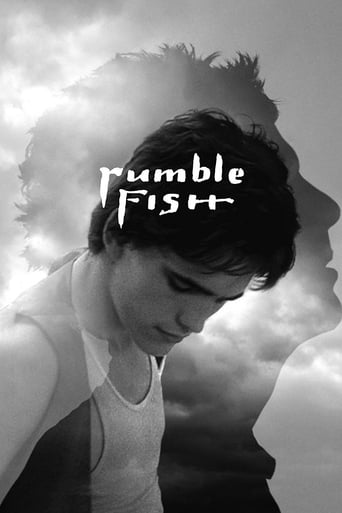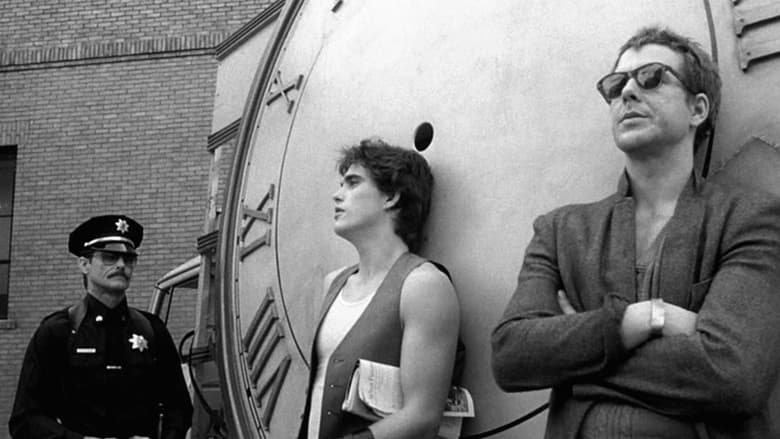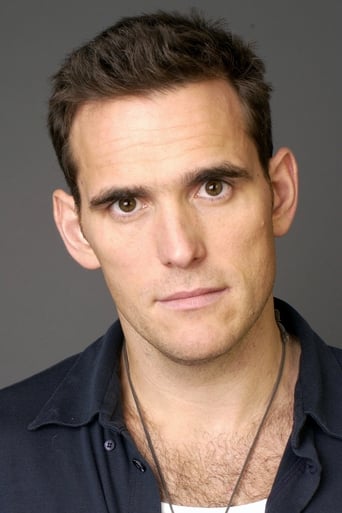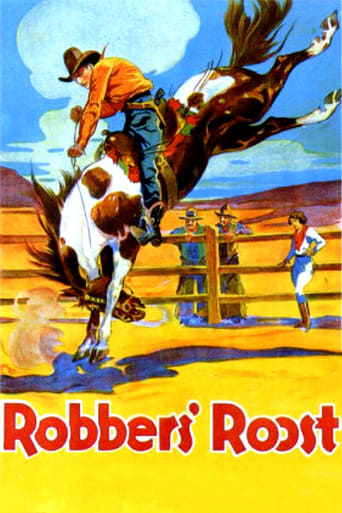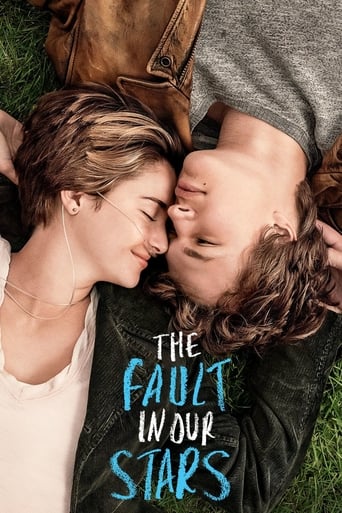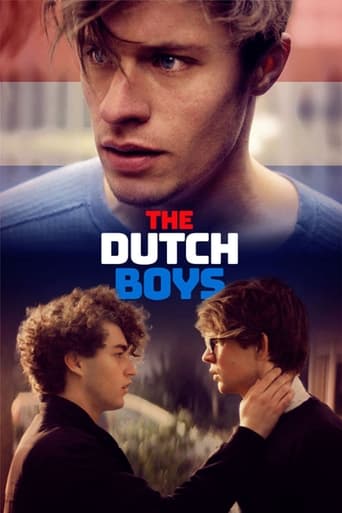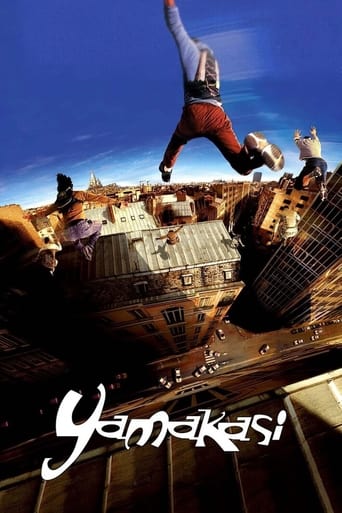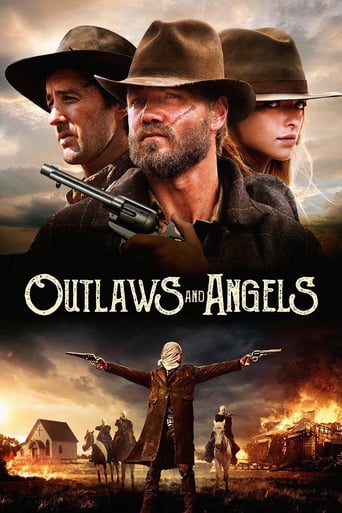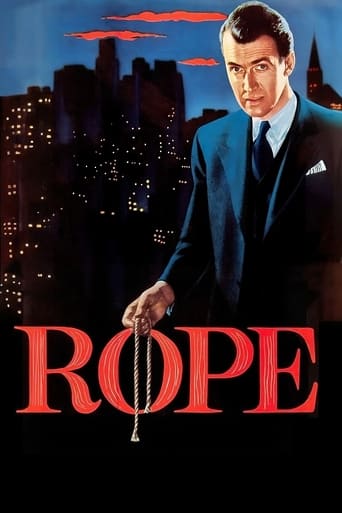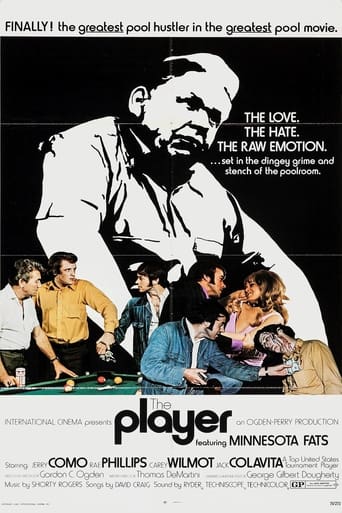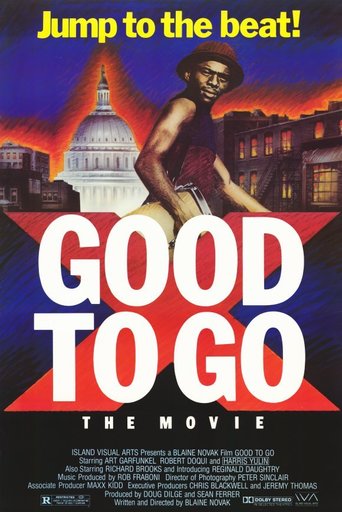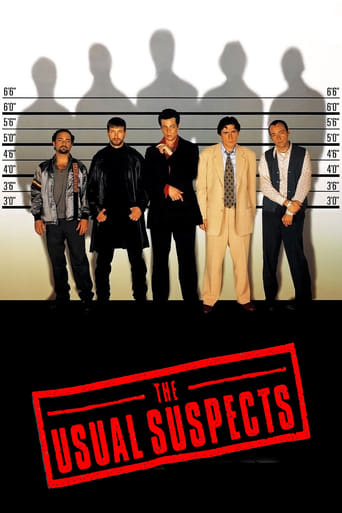Rumble Fish (1983)
Rusty James, an absent-minded street thug, struggles to live up to his legendary older brother's reputation and longs for the days when gang warfare was going on.
Watch Trailer
Cast


Similar titles
Reviews
Plenty to Like, Plenty to Dislike
Awesome Movie
A Masterpiece!
I am only giving this movie a 1 for the great cast, though I can't imagine what any of them were thinking. This movie was horrible
Youth alienation seems to be the obvious theme of this story about a high school kid named Rusty James (Matt Dillon), a big believer in rough, angry neighborhood gangs, and his long-lost older brother who unexpectedly returns. Perhaps at a more subtle level, the story's theme relates to the passage of time, in hours and years, as evidenced by the film's visuals of passing clouds and the presence of clocks in numerous scenes.The story is thin. Rusty and his "gang" hang out, talk, walk around a lot, get angry, encounter various characters that appear in some scenes, then disappear. Ultimately, the glue that holds the plot together is the relationship between Rusty and his enigmatic, somewhat intellectual older brother, no longer a gang leader, who now functions as Rusty's mentor who over time, wised up. The story's era is unclear.Casting is okay except for a disconnect between story location and character accents. The setting is supposed to be Oklahoma; yet, most characters, and especially Rusty James, speak with a thick New York accent. Director Francis Ford Coppola made the same mistake in "The Outsiders", using the same location and some of the same actors.The film was shot in B&W, except for a couple of scenes where aquarium fish appear in red and blue. Overall photography is interesting in that visuals have a look and feel influenced strongly by German Expressionism, and include low-angle, noir lighting, heavy shadows, smoke and fog, and a few weird camera angles. Visuals in many scenes convey a gritty, dingy, urban look.In the copy I watched, dialogue sounded muffled and hard to understand. Background sounds combined general urban clanking noise with the rhythmic based ticks of a clock and light jazz to create an interesting if perhaps contrived overall soundtrack.An art film that was not well received by audiences when it came out, "Rumble Fish" would appeal to an art house audience but probably few others. I found the story talky and boring, though the B&W visuals were interesting in a stylized sort of way.
It's a shame that Rumble Fish has gone under the radar for so long. It's a special film that I honestly think is a little bit better than Outsiders. Hold down the pitchforks! I still love Outsiders; I just feel that the addition of a couple cast members (Nicolas Cage in particular) really helped in elevating the material.
RUMBLE FISH is probably one of the less-seen films in Francis Ford Coppola's oeuvre, but I found it to be an eminently watchable, artsy gem that has a great sense of mood and style. The story revolves around Rusty James (Matt Dillon), a troubled teenager who finds it difficult living up to the reputation of his smarter older brother (Mickey Rourke). The main message I took from the film is that we too often look up to people for the wrong reasons, or idealize them without having a true sense of who they are. RUMBLE FISH explores youth through a dystopian lens, and Coppola conjures up dreamlike, occasionally borderline surreal, imagery to escort us through Rusty James' world. The film is in black and white, with a few instances of color for emphasis. Stylistically, this was a kind of cross between film noir, WEST SIDE STORY and a Michael Jackson video. In particular, an early fight sequence between Rusty and another character evoked the climactic fight in WEST SIDE STORY. In general, there was this balletic quality to the way the characters moved. When combined with Coppola's eloquent cinematography and an eclectic score, the effect is often hypnotic and always engrossing. That being said, the story itself meanders a bit too much and most of the performances (by young actors) were rather rough around the edges. Of course, part of that could have something to do with how the dialogue was post-synced. But still, RUMBLE FISH ranks pretty high among the most visually interesting films I've ever seen, even if the story and performances leave a bit to be desired.
Cinematically speaking, "Rumble Fish" is dynamic movie making. The crisp black and white photography, creative use of shadows and camera angles, and effective character portrayals make the film a modern day classic. With it's themes of alienation and loneliness it reminds me of 1971's "The Last Picture Show", a truly depressing movie once you delve into it. This movie also detours into the idea of mental illness for one of it's main characters, The Motorcycle Boy portrayed by Mickey Rourke. There are a number of incidents that take you in that direction, beginning with MB's first appearance on screen when he drives his motorcycle into the street punk getting beat up by brother Rusty James (Matt Dillon). Later on, Father (Dennis Hopper) opines that an acute perception can make you crazy, hinting at MB's outlook on life and how he was affected by seeing their mother out in California while Rusty presumed she was dead.Another surprising element of the story, to me at least, was the treatment of life after death showing Rusty James' spirit floating away after getting clubbed by the street thugs using the tire iron. The idea of one's spirit or ghost being able to observe what's happening around them after death isn't so novel any more, but once again, three decades ago putting this on film was something of a break through. Today there are many accounts of individuals who have experienced these sorts of phenomena.I also liked the idea of tying in the film's black and white style with Motorcycle Boy's color blindness. It allowed for the few brilliant flashes of color that accentuated the movie's title, as the only objects of color were the Siamese fighting fish, the rumble fish. Setting them free was a symbolic way for Motorcycle Boy to show his brother what he had to do to if he was to save himself from the boredom and monotony of his own life. The film is loaded with nuances like this that become more evident with repeat viewings. I watched the picture a couple times back to back and was surprised to acquire so much additional understanding the second time around. It's as if I gained an acute perception of what the writer and director were trying to say without actually going crazy.

